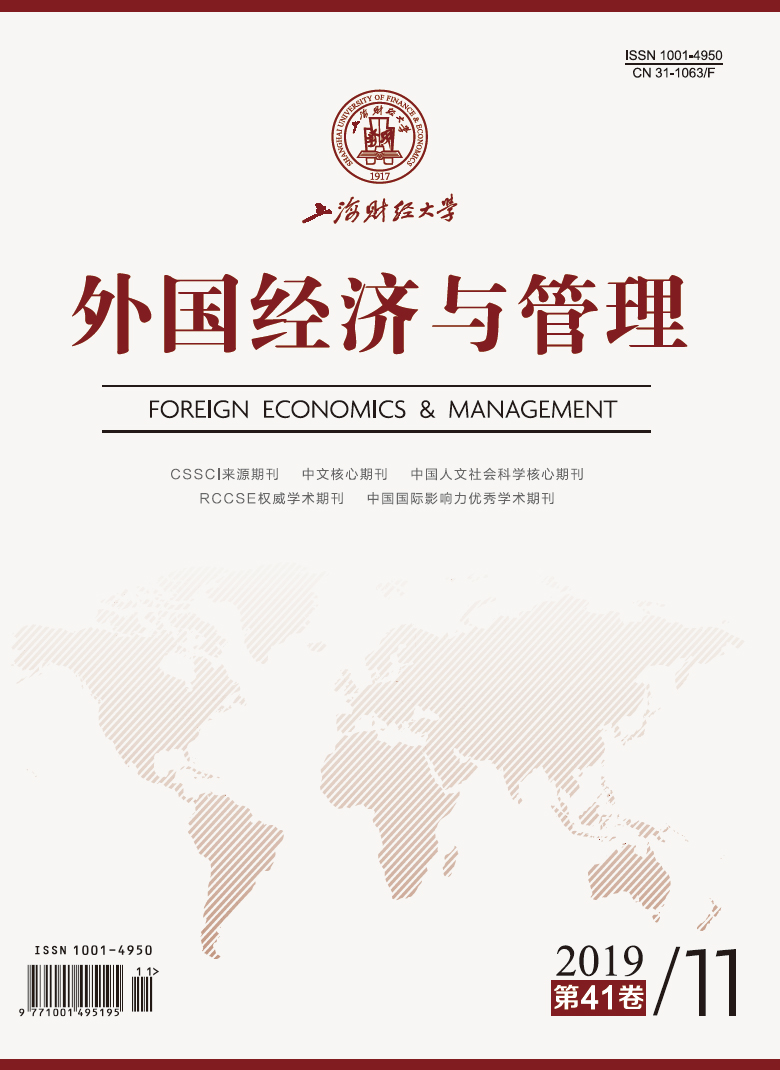信任品指的是消费者在使用之后也较难判断其质量的产品。以往关于信任品管理和创新的研究大多集中在企业层面和市场分析层面,而通过个体层面的消费者视角来探索信任品管理绩效的研究则较少。鉴于此,本文站在个体层面将消费者对信任品的采纳作为企业管理信任品绩效的考量指标,探索在网络购物情境下,市场信号对信任品采纳的影响机制及其影响因素。三项实验的结果表明,独立型自我建构的消费者对展示第三方认证信号(相较于在线评论信号)的信任品有更积极的评价,而相依型自我建构的消费者对展示在线评论信号(相较于第三方认证信号)的信任品有更积极的评价,而这种效应通过影响消费者的感知信任起作用。
市场信号对信任品采纳的影响研究:基于自我建构的调节效应
摘要
参考文献
2 李东进, 张成虎, 马明龙. 脱销情境下消费者会购买相似品吗——自我建构视角的分析[J]. 南开管理评论,2016, (3): 98-109, 122. DOI:10.3969/j.issn.1008-3448.2016.03.010
4 王海忠, 王骏旸, 罗捷彬. 要素品牌策略与产品独特性评价: 自我建构和产品性质的调节作用[J]. 南开管理评论,2012, (4): 111-117. DOI:10.3969/j.issn.1008-3448.2012.04.012
5 王建华, 包含, 路璐. 标签信号、价格信号与信任品市场均衡形态分析[J]. 软科学,2014, (10): 91-95. DOI:10.3969/j.issn.1001-8409.2014.10.020
6 王建华, 陆晓博, 包含. 第三方认证下的食品信任品市场均衡形态分析[J]. 工业工程,2016, 19(3): 7-13, 29. DOI:10.3969/j.issn.1007-7375.2016.03.002
7 王永钦, 刘思远, 杜巨澜. 信任品市场的竞争效应与传染效应: 理论和基于中国食品行业的事件研究[J]. 经济研究,2014, (2): 141-154. DOI:10.3969/j.issn.1673-291X.2014.02.059
8 王志刚, 杨胤轩, 刘和, 等. 消费者对农产品认证标识的认知水平、参照行为及受益程度分析——基于全国20个省市自治区的问卷调查[J]. 农业经济与管理,2013, (6): 38-44, 59. DOI:10.3969/j.issn.1674-9189.2013.06.005
9 杨国枢. 中国人的心理与行为: 本土化研究[M]. 北京: 中国人民大学出版社, 2004.
12 Balineau G, Dufeu I. Are fair trade goods credence goods? A new proposal, with French illustrations[J]. Journal of Business Ethics,2010, 92(S2): 331-345. DOI:10.1007/s10551-010-0577-z
14 Bei L T, Chen M Y, Tsai M C. The thinking style and information source preference for consumers with an interdependent-self versus an independent-self[A]. Proceedings of the 2007 Society for Marketing Advances Annual Conference[C]. Antonio, TX, USA, 2007.
15 Brewer M B, Gardner W. Who is this " we”? Levels of collective identity and self representations[J]. Journal of Personality and Social Psychology,1996, 71(1): 83-93. DOI:10.1037/0022-3514.71.1.83
16 Chevalier J A, Mayzlin D. The effect of word of mouth on sales: Online book reviews[J]. Journal of Marketing Research,2006, 43(3): 345-354. DOI:10.1509/jmkr.43.3.345
17 Darby M R, Karni E. Free competition and the optimal amount of fraud[J]. The Journal of Law and Economics,1973, 16(1): 67-88. DOI:10.1086/466756
19 Kim K, Kim J. Third-party privacy certification as an online advertising strategy: An investigation of the factors affecting the relationship between third-party certification and initial trust[J]. Journal of Interactive Marketing,2011, 25(3): 145-158. DOI:10.1016/j.intmar.2010.09.003
20 Ma Z F, Yang Z Y, Mourali M. Consumer adoption of new products: Independent versus interdependent self-perspectives[J]. Journal of Marketing,2014, 78(2): 101-117. DOI:10.1509/jm.12.0051
22 Olaleye S A, Salo J, Ukpabi D. The role of reputation on trust and loyalty: A cross-cultural analysis of tablet e-tailing[J]. International Journal of E-Business Research,2018, 14(2): 61-75. DOI:10.4018/IJEBR.2018040104
23 Pan L Y, Chiou J S. How much can you trust online information? Cues for perceived trustworthiness of consumer-generated online information[J]. Journal of Interactive Marketing,2011, 25(2): 67-74. DOI:10.1016/j.intmar.2011.01.002
24 Rahim R A, Sulaiman Z, Chin T A, et al. E-WOM review adoption and green purchase intention: The application of source credibility theory(SCT)[J]. Advanced Science Letters,2015, 21(6): 2150-2154. DOI:10.1166/asl.2015.6238
25 Singelis T M. The measurement of independent and interdependent self-construals[J]. Personality and Social Psychology Bulletin,1994, 20(5): 580-591. DOI:10.1177/0146167294205014
27 Stouthuysen K, Teunis I, Reusen E, Slabbinck H. Initial trust and intentions to buy: The effect of vendor-specific guarantees, customer reviews and the role of online shopping experience[J]. Electronic Commerce Research and Applications,2018, 27: 23-38. DOI:10.1016/j.elerap.2017.11.002
28 Sullivan Y W, Kim D J. Assessing the effects of consumers’ product evaluations and trust on repurchase intention in e-commerce environments[J]. International Journal of Information Management,2018, 39: 199-219. DOI:10.1016/j.ijinfomgt.2017.12.008
29 Sweeney J C, Soutar G N. Consumer perceived value: The development of a multiple item scale[J]. Journal of Retailing,2001, 77(2): 203-220. DOI:10.1016/S0022-4359(01)00041-0
30 Tsao W, Hsieh M T. eWOM persuasiveness: Do eWOM platforms and product type matter?[J]. Electronic Commerce Research,2015, 15(4): 509-541. DOI:10.1007/s10660-015-9198-z
31 Wu E C, Moore S G, Fitzsimons G J. Wine for the table: Self-construal, group size, and choice for self and others[J]. Journal of Consumer Research,2019. DOI:10.1093/jcr/ucy082.
33 Yang H Y, Stamatogiannakis A, Chattopadhyay A. Pursuing attainment versus maintenance goals: The interplay of self-construal and goal type on consumer motivation[J]. Journal of Consumer Research,2015, 42(1): 93-108. DOI:10.1093/jcr/ucv008
引用本文
沈曼琼, 王海忠, 刘笛, 等. 市场信号对信任品采纳的影响研究:基于自我建构的调节效应[J]. 外国经济与管理, 2019, 41(11): 99-113.
导出参考文献,格式为:
下一篇:张瑞敏的水式管理哲学及其理论体系





 , 1
, 1 9872
9872  7693
7693

